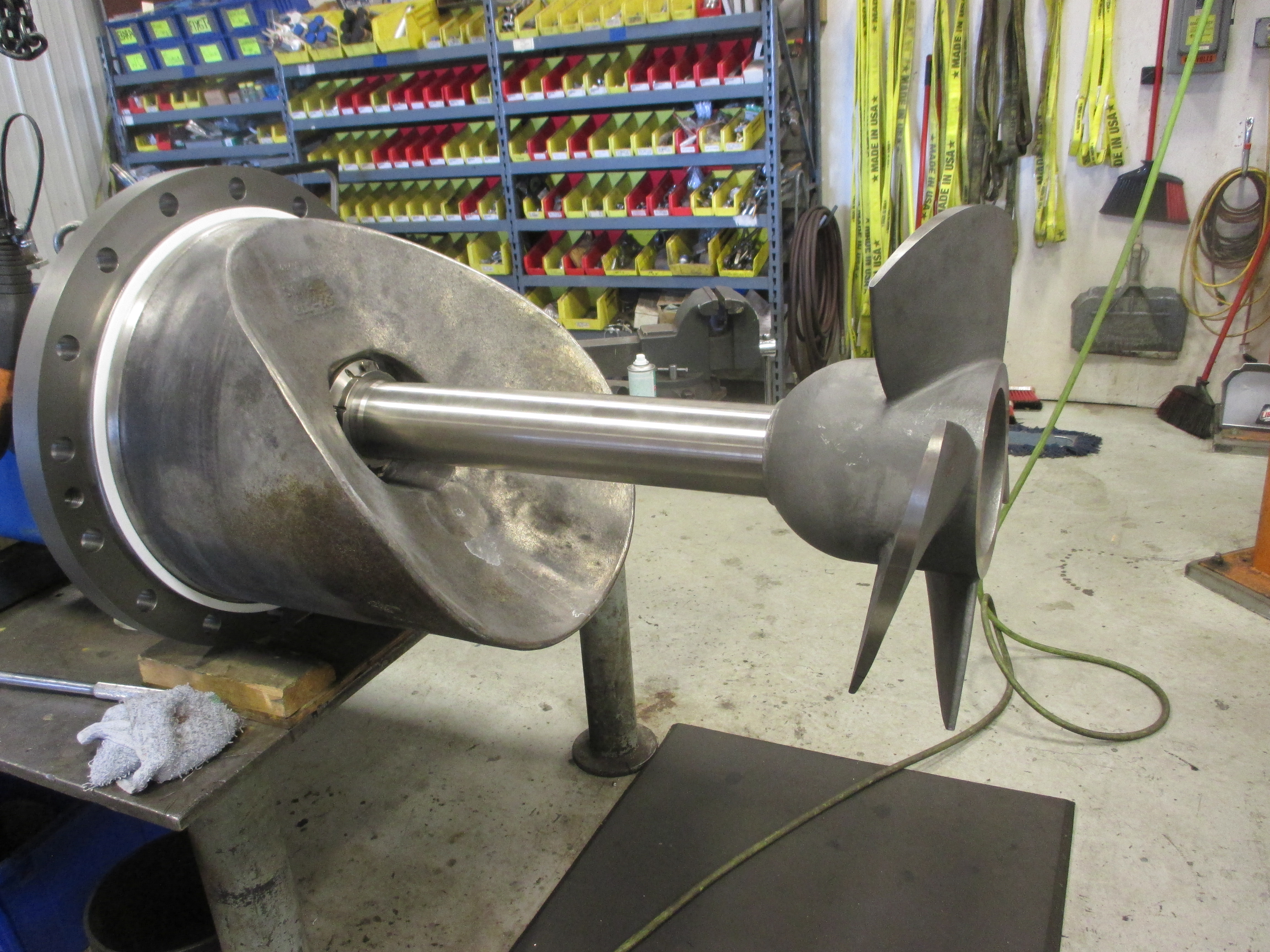By Blake Kolquist on Jan 28, 2022 12:11:46 PM
What is an Axial Flow Pump?
Axial flow pumps are designed for use in high-flow, low-head applications. This type of pump directs flow axially without changing the fluid particles’ radial locations due to a minimal change from suction to discharge. They’re often used in chemical processing and hydrocarbon processing applications - and when they’re built with the right materials (i.e., titanium or stainless steel), axial flow pumps are powerfully effective in instances where water is mixed with highly corrosive materials or chemicals.
Axial Flow Pumps in Paper Manufacturing
The paper manufacturing process requires an intense chemical bleaching process to remove pulp’s natural brown coloring and transform it into the pure white pages we use daily. Without bleaching, wood’s lignin fibers produce the brown paper often seen in grocery bags and cardboard packaging.
The bleaching process uses large amounts of chlorine dioxide (ClO2), a highly-corrosive chemical that is hard on equipment. In these types of environments, only the toughest materials will have any staying power. Everything else will get eaten away and become unusable - and potentially unsafe - fast.
A system is only as strong as each individual part, and in a highly corrosive environment like paper manufacturing, using components built with the right materials is essential. The longer each component can last, the better. Going years between failures rather than months represents significant cost savings in terms of downtime, repair or replacement.
The Made Tough™ Difference
GPM often serves customers in tough industries like manufacturing, mining, construction or wastewater treatment (among many others!). Pump material selection is critical, and the GPM team works diligently to ensure proper equipment solutions. The failure of just one small part can have huge consequences, potentially shutting down an entire operation.
For highly corrosive environments, we turn to titanium and 316 stainless steel, some of the most durable materials available on earth. Titanium resists corrosion because it is protected by a passive oxide film. Stainless steel is less resistant to corrosion than titanium, but when it includes the right amount of chromium near the surface layer, it will withstand corrosive environments longer than most other metals.
By using titanium and stainless steel selectively in the pumps, we can ensure each part fits correctly within the system to ultimately help ensure a long usable life.
The Secret to Making Perfectly White Paper: A Corrosion-Resistant Axial Flow Pump
When a large paper manufacturer was breaking pump shafts every 2-3 months, they turned to the GPM service team to correct an existing pump problem with a reliable solution designed to last.



